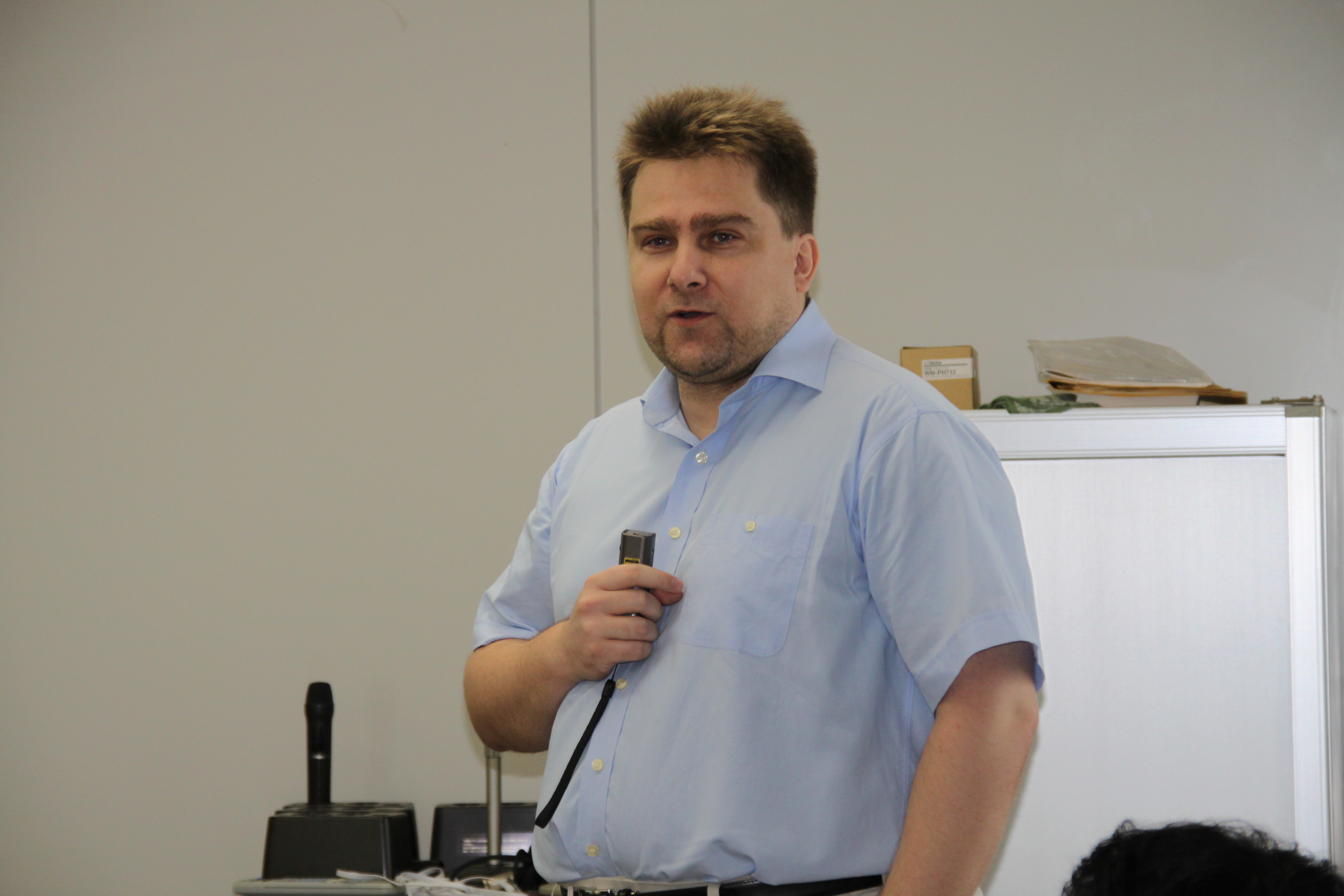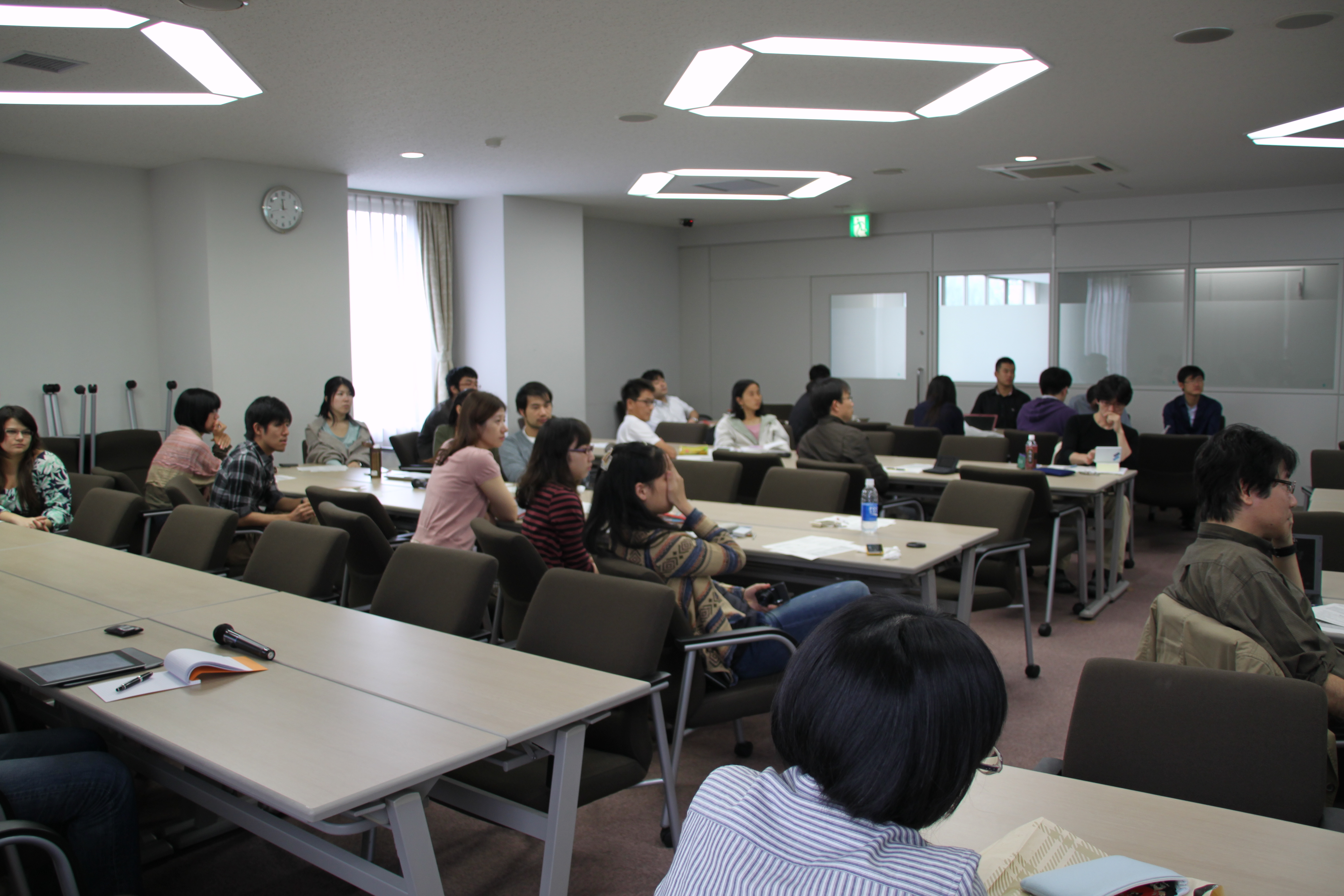Attribution of Liability for Misappropriation of Tangible and Intangible
Note: This workshop was jointly held with the Study Group of Intellectual Property Law, Hokkaido University.
Date: Oct 3, 2012 (Wed) 10:30-12:00
Location: Hokkaido University, The Humanities and Social Science Building, room W409
Participants: Yoshiyuki Tamura, Tatsuya Kameda, Masaki Yuki, Nobuyuki Takahashi, Taiki Takahashi, , Seungkyoon Kye, Kosuke Sato and others (total participants 38)
Title: Attribution of Liability for Misappropriation of Tangible and Intangible
Things in Japan: To Change the Law or to Change the Minds
Speaker: Branislav Hazucha (Associate Professor, Hokkaido University)


Contents:
This presentation explores factors, which can affect individuals’ decisions on judging misappropriations of tangible and intangible objects as wrongful. It analyzes the data collected in a mail survey conducted in Sapporo, the fifth largest town in Japan. A random sample of 264 residents (from 20 to 60 years old) living in Sapporo were asked to respond to four short vignettes describing individual acts of misappropriations, such as (a) stealing a bicycle; (b) copying a DVD; (c) plagiarizing a song; and (d) manufacturing shoes with a design similar to the design of branded luxurious products. The experimentally varied vignettes included considerations of the wrongdoing’s circumstances (e.g., the actor’s mental state and the fame of copyrighted work or protected design) and consequences (e.g., the harm caused to a right-holder or consumers, the benefit gained by a wrongdoer, and the causal link between the act of wrongdoing and gained benefit).
The results obtained by the ordered logistic regression analysis of collected data show that the individuals clearly judge many uses of intangible things as wrongdoings, although their judgment can sometimes considerably differ in many regards from the current intellectual property law in Japan. In comparison between responses to different vignettes with same variables, we also found two significant differences in treating same or similar uses of different objects and different uses of same or similar objects. First, misappropriation of tangible things is treated more severely than misappropriation of intangible objects. Second, copying of entire copyrighted works is judged more severely than commercial activities where copyright infringement can occur accidentally or as a result of independent creation.